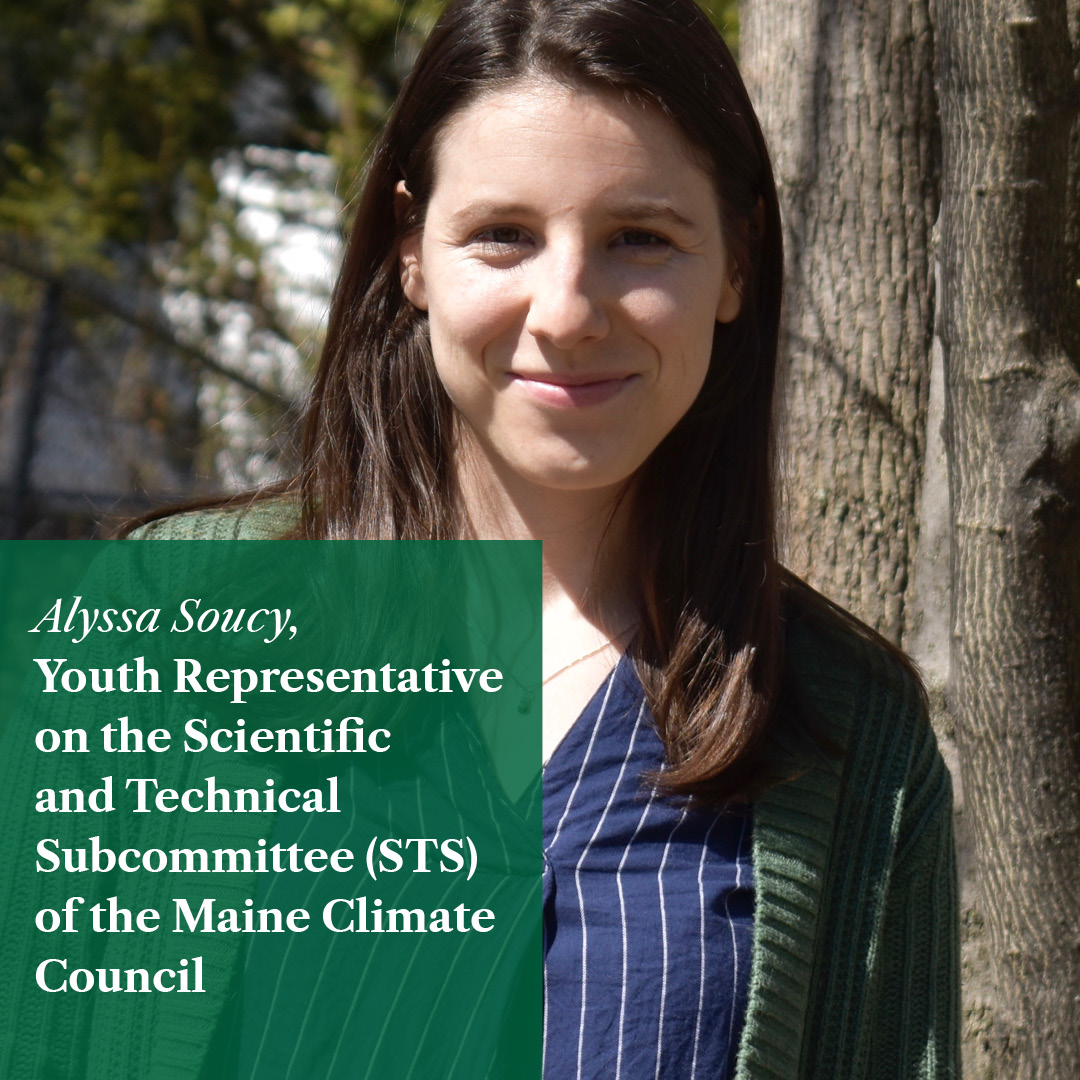
Representing Youth Voices on Climate Change
As Youth Representative on the Scientific and Technical Subcommittee (STS) of the Maine Climate Council (MCC), Alyssa Soucy brings climate change concerns and viewpoints of Maine’s youth to the table. The University of Maine Ecology and Environmental Science PhD student pairs social science training with insights into young Mainers’ climate ideas to help inform the climate science reports behind Maine Won’t Wait.
Alyssa describes her role and her viewpoint on what matters most about climate change to young people in Maine.
- Why and how did you become the STS Youth Representative?
I became involved as the youth representative after following along the progress of the MCC in its first year, and being impressed with the level of collaboration. Conducting climate change research and engaging with youth at the time, I saw an opportunity to become involved as a way to learn more about the collaborative process and represent the voices of youth in a new way. As I am connected to the concerns and activities of youth in the state, I bring a younger perspective to the meetings, writing, and work that we do. As a social scientist, I also consider the relevant work being done around the human dimensions of climate change that may inform our work as we consider a broad range of climate change impacts and science that can inform strategies.
- What do you hear from younger generations about climate change?
While there is anxiety and fear around our future due to the impacts of climate change, I also have seen inspiring amounts of individual and collective action. We are particularly concerned about issues of diversity and equity of the impacts of climate change and potential solutions. Climate change is very much linked to issues of social justice. As a group we are capable of making change; though we continue to seek the support of older generations in creating a sustainable world that we will inherit.
- Are there Maine Won’t Wait climate plan strategies which you consider high priority for Maine’s youth?
Engaging with Maine’s people and communities (Strategy H of Maine Won’t Wait) will remain critical for fostering support and dialogue around climate change at a local level. Support for education across all age groups is necessary. When people care about the environment and communities those environments are linked to, there is increased support for the other strategies that address conservation, transportation, clean energy, and more. With that said, particular focus also needs to be paid to issues of diversity, equity, and inclusion as all the strategies are implemented. Consideration of local needs and values, differences in access and resources, and diversity are important to remain relevant and equitable for Maine’s people as we move forward.
- Do you have any tips for young people in Maine who want to take climate action and/or pursue climate science related careers?
Getting involved at the local level is a great place to start. Ask your teachers, professors, peers, librarians, etc. about opportunities to take climate action. There are also several youth groups in the state that are extremely welcoming and get involved (e.g., Maine Youth for Climate Justice).
There are many ways to explore climate science careers. An internship can be a great way to discover what you do (or don’t) like. Also, ask teachers about research or other opportunities outside of the school day. I’ve found that people working in climate change and conservation in Maine are always willing to talk to youth and serve as a mentor, so don’t be afraid to reach out to individuals you would like to learn more about!
Read about how to get involved in community or citizen science here!